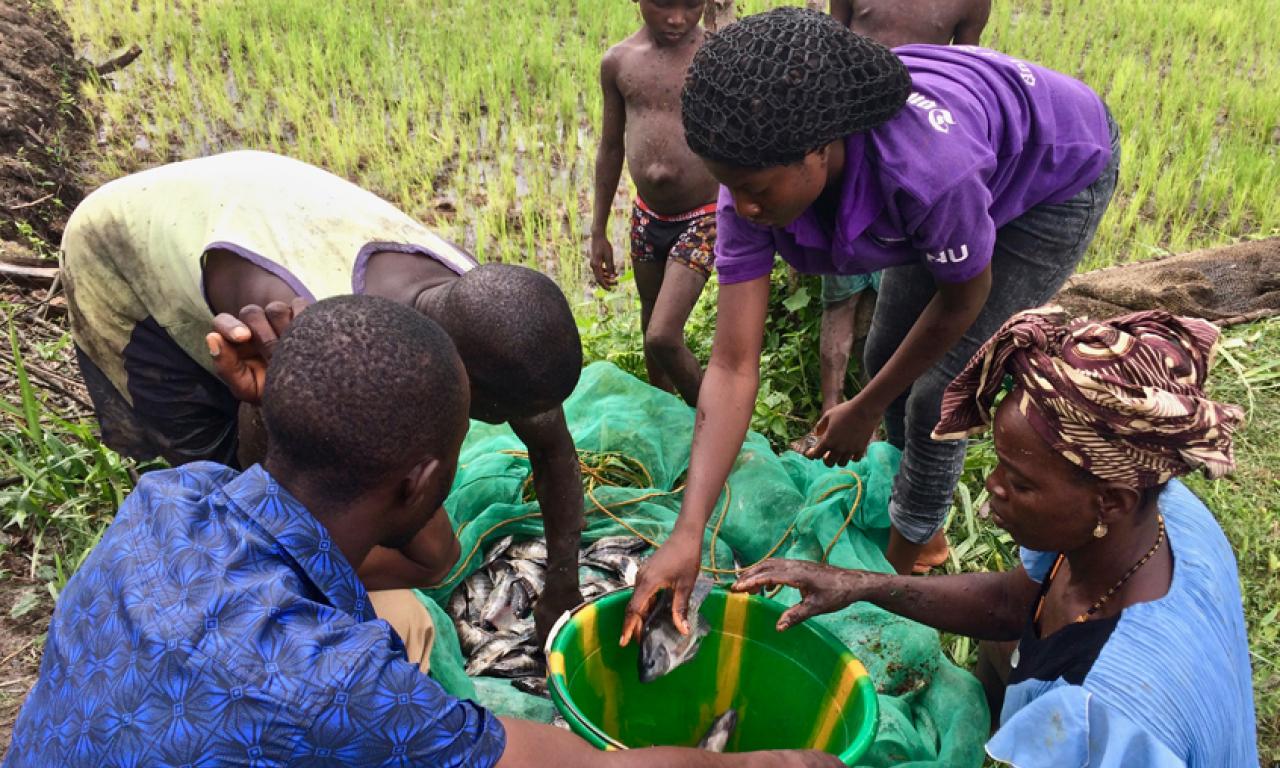
In Sierra Leone, nearly half the population is food insecure and nearly one-third of children under five years old are chronically malnourished. Malnutrition rates are even higher in the poorest and most food insecure districts, such as Tonkolili District in the north.
Recommended publications
- Food and nutrition security in Sierra Leone with a focus on fish in Tonkolili District
- SAP fact sheet
Yeanoh’s passion: Closing the gender gap in agriculture in Sierra Leone
In Sierra Leone, nearly half the population is food insecure and nearly one-third of children under five years old are chronically malnourished. Malnutrition rates are even higher in the poorest and most food insecure districts, such as Tonkolili District in the north.
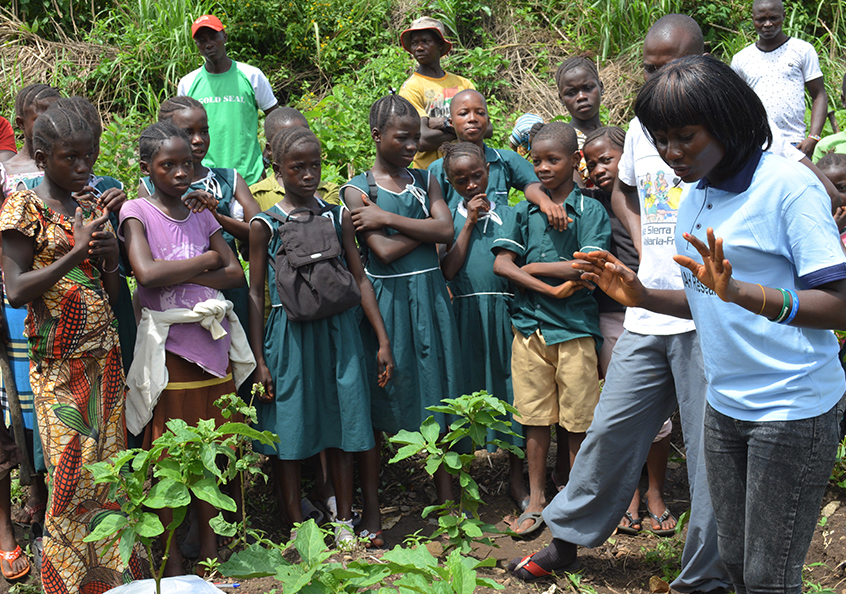
Gender inequality in agriculture, including aquaculture, exacerbates this—a problem that 24-year-old Yeanoh Dumbuya is now working to tackle.
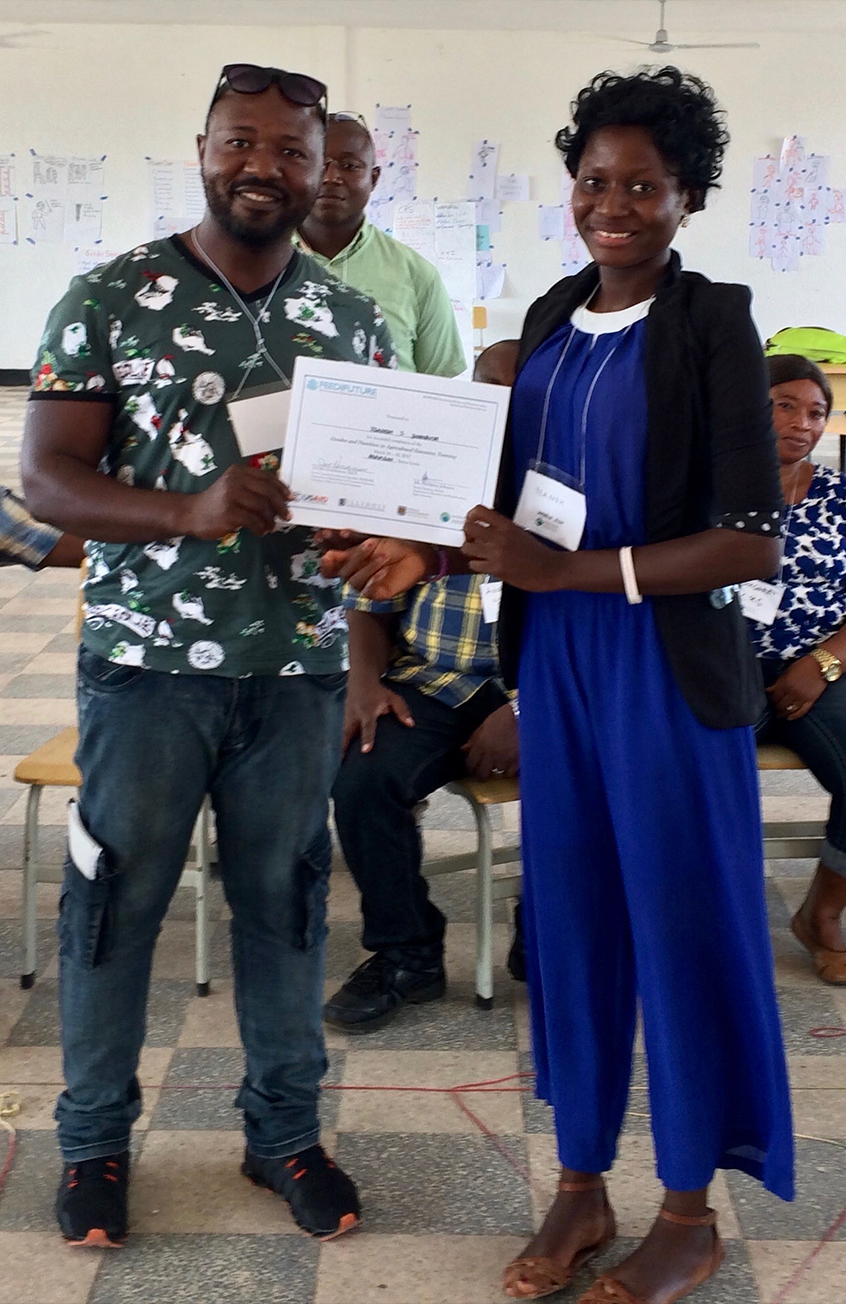
Yeanoh’s early interest in agriculture
As a young girl, Yeanoh Dumbuya wanted to know why so many people in Sierra Leone were malnourished.
Yeanoh’s drive for answers led her to study nutrition at Njala University, where she discovered how gender inequalities in agriculture can lead to poor nutrition outcomes. Women farmers are often deprived of resources and opportunities to improve food production, processing, marketing, and distribution activities.
When it comes to the daily time and labor spent on the farm, Yeanoh says that women are very involved, and furthermore are expected to care for the children and prepare food for the family. “When people think that agriculture here is for men, they need to really think about how involved women are.” Because while women are responsible for a substantial portion of farm labor, men generally have more access to information and inputs and lead farm management and income use decisions. “These gender gaps negatively affect access to nutritious foods produced, purchased, and allocated among the family,” Yeanoh says.
“When women have equal access to on-farm assets like land and labor, this can increase agricultural yields, which in turn leads to increased income.”
Gender inequality in agriculture in Sierra Leone
In Sierra Leone, over 700,000 households (58 percent of total households) are engaged in agriculture, mostly of a subsistence nature, with approximately 250,000 households involved in the fishery sector.
Women make up much of the farming workforce, says Yeanoh.
“In aquaculture, for example, women do day-to-day maintenance of the ponds, help with harvesting and do most of the post-harvest activities.”
Yet, compared to men, women have less access to and control over land and ponds, and have less access to training opportunities more broadly. This results in women receiving less returns and income from agriculture and fish farming, which negatively influences a household’s ability to access sufficient food and cope with shocks.
And, within a household, women often have less decision-making powers than men concerning spending and food allocation.
“Typically, males are given the most protein while women and young girls receive very little,” Yeanoh says. “This has significant implications for the nutritional status of women and children.”
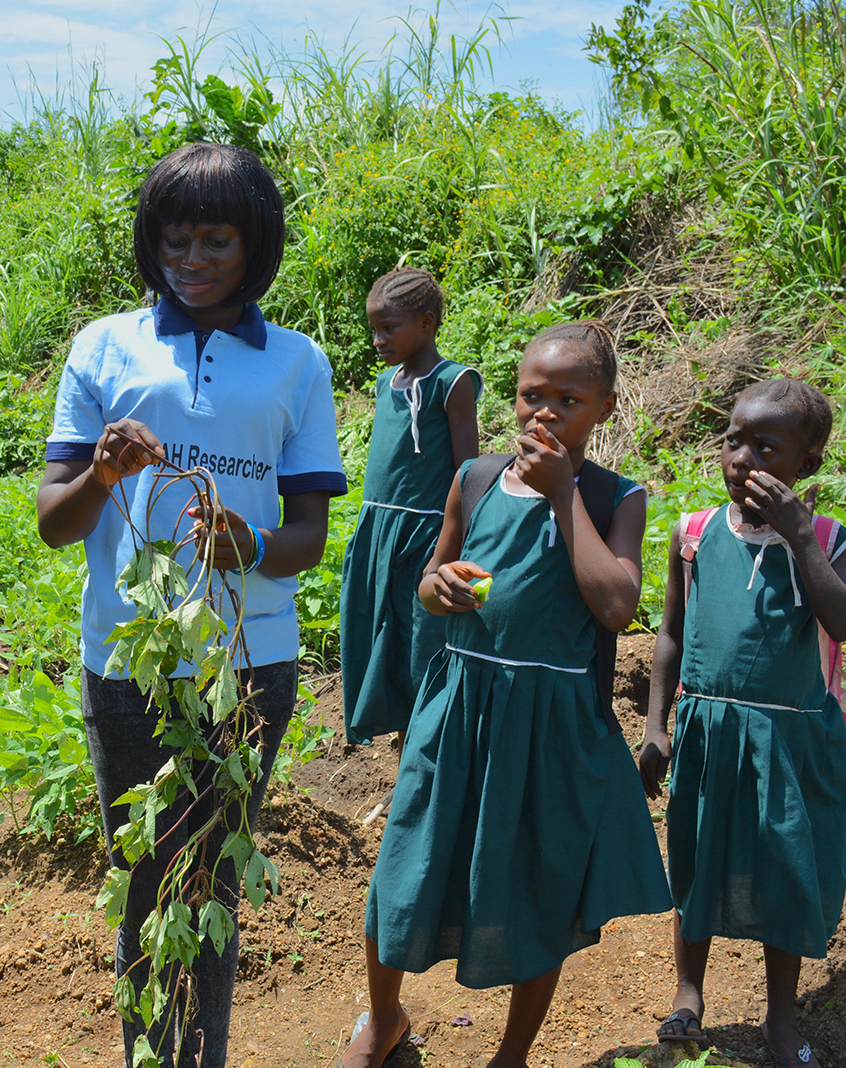
Towards equality
Closing this gender gap is one of the aims of the WorldFish-led Scaling up Aquaculture Production research project, where Yeonah is engaged as a cluster farmer connector specializing in nutrition.
Funded by the USAID Feed the Future initiative, the project is testing pro -poor aquaculture business models with rural farmers, with a strong focus on gender.
Yeanoh is actively involved in overlapping partnership activities with the Integrating Gender and Nutrition within Agriculture Extension Services (INGENAES) project, working with WorldFish under Feed the Future to test more effective ways to empower women and men farmers and improve nutrition.
“When women have equal access to on-farm assets like land, labor, extension, and credit for other inputs this can increase agricultural yields, which in turn leads to increased income,” Yeanoh explains.
In her role, Yeanoh provides extension and technical assistance to women, men, and youth fish farmers to build their capacities to farm tilapia as a business, and improve their households’ nutrition through the consumption of fish and the purchase of nutritious foods using the money from fish sales. Yeanoh has also supported households to register with Apex Bank to qualify for the first seasonal loans granted to smallholder fish farmers in Sierra Leone.
Her support has enabled farmers to construct new fish ponds, to make fish feed using locally-accessible ingredients, map marketing opportunities, and to sell their fish for a profit to boost their incomes.
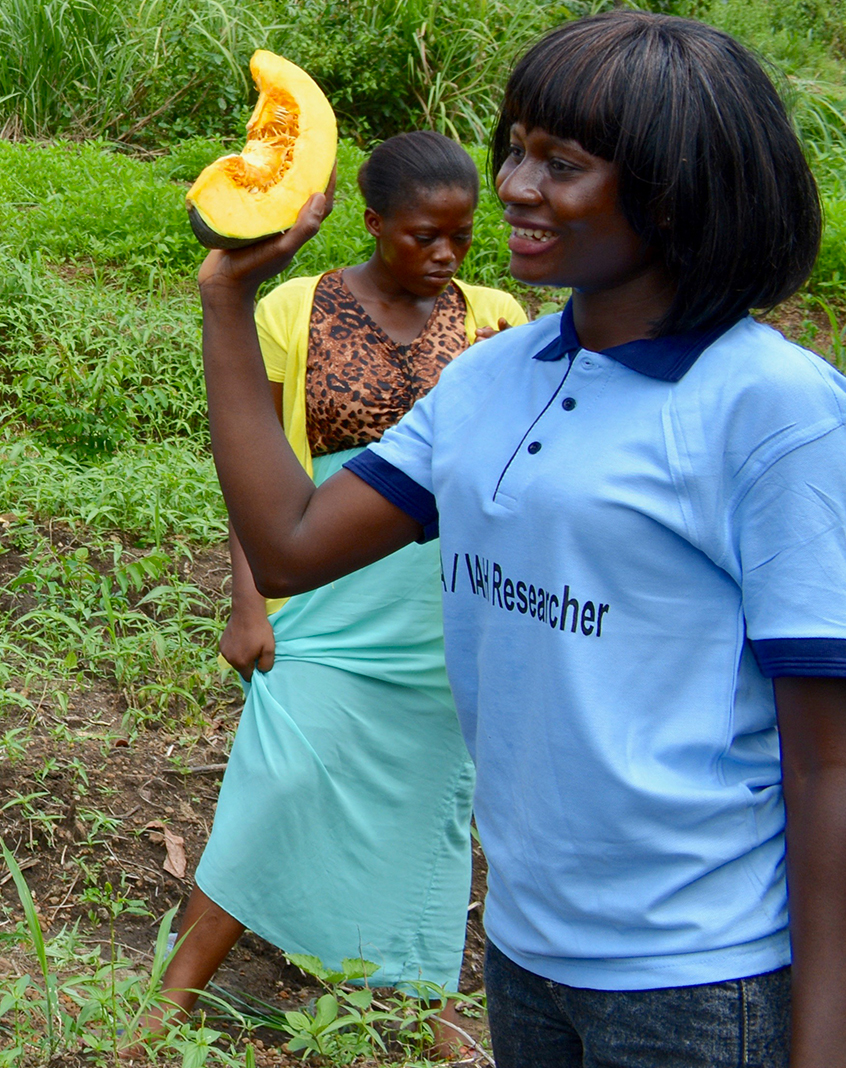
The potential of youth to create change
Being a young woman in a sector perceived as male-dominated has its challenges, Yeanoh admits. But, on the positive side, it’s led her to focus on building strong relationships with both men and women farmers in the field.
Very few women are agricultural extension workers in Sierra Leone. Yeanoh feels that in addition to being able to effectively train women fish farmers, she “will even find that young men farmers respect you more, as a woman professional with knowledge of agriculture, and then they listen to you.”
Inspired by her successes, Yeanoh now wants to motivate other young women to enter the agricultural sector, as a greater number of women extension agents would more appropriately represent the farming labor force dominated by women in the country.
“Young women avoid studying agriculture or consider it a field for men, but we are seeing successful women changing agriculture for the better all over the world. And we need women professionals in this field to bring more people together and help more farmers.”
It is the involvement of youth as gender and nutrition change makers, she believes, that will be critical to the agricultural sector’s transformation.
“Youth are interested and open to learning about this. They want to be involved, and with them this work will continue.”